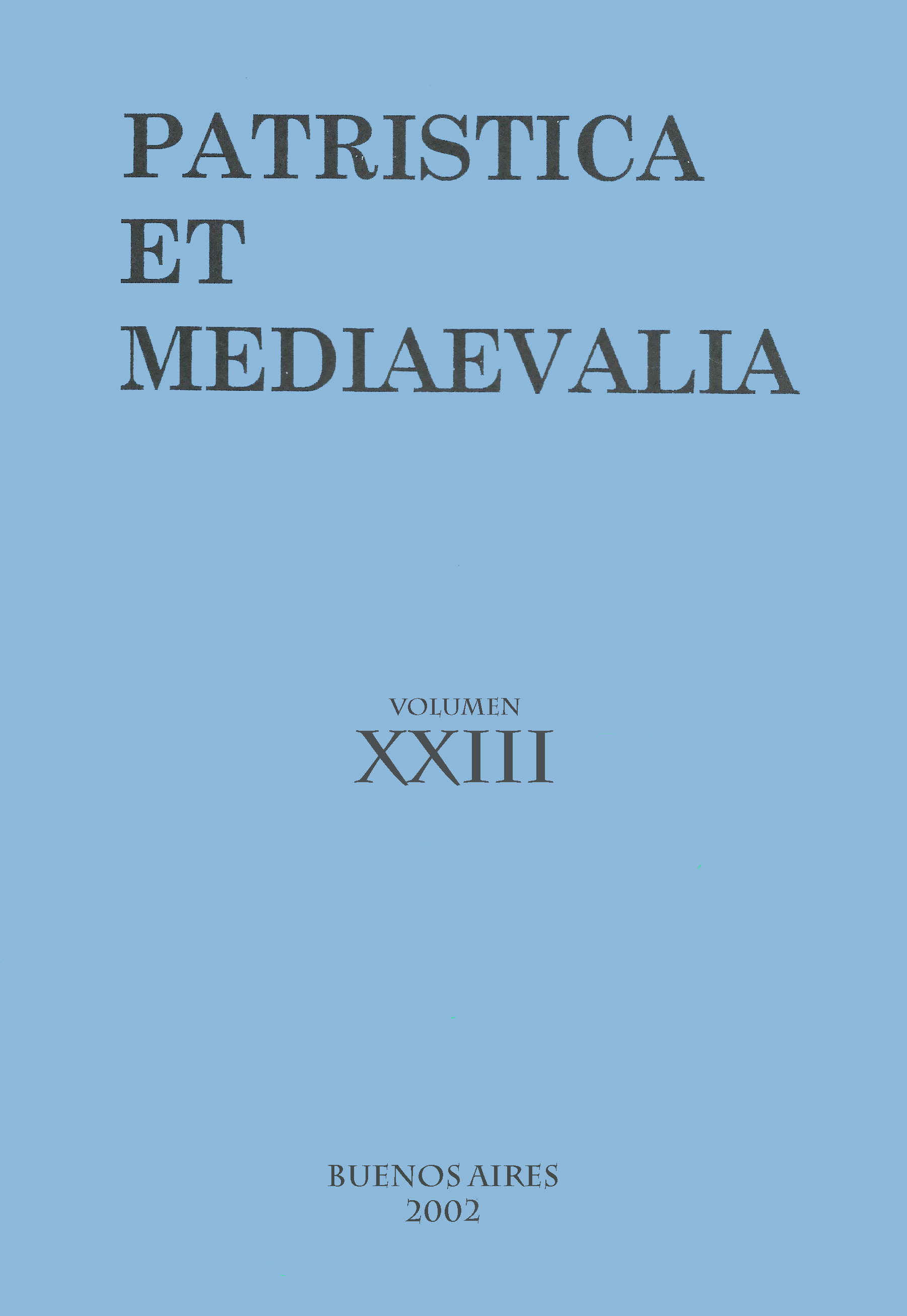Factuality and Legality in Ockham's Theory of Property
Abstract
William of Ockham’s political works arose from his participation in the quarrel of poverty between the Papacy and the Franciscan order that involved the reflection on property. Because of the wholly dialectical nature of these works, and Ockham’s constant references to the doctrinal sources of the discussion, it is difficult to determine to what extent the author is an original theoretician of property, and not a mere reviewer of the discussions in course. Here are analysed the central theoretical terms of the Opus Nonaginta Dierum, his first individual political work –“factual use”, “use of right”, “dominion”–, their utilization in the debate on evangelical poverty with the Pope John XXII, and finally, the theory of natural right to property, as it is presented in the same work and in the later Breviloqium de potestate papae. The conclusion is that one of the main contributions of Ockham is having transferred the central concepts of the civil law of property –“inalienability”, “the power of claim”, “the power of resignment”– to a theory of natural right to property.Downloads
References
Baudry, L. (1965). L’Ordre franciscain au temps de Guillaume d’Occam. Medieval Studies, 27, 184-211.
Coleman, J. (1984). Ratio and Dominium according to John of Paris and Marsilius of Padua. En Kaluza, Z. & Vignaux, P. (eds.). Preuve et raisons à l’université de Paris, Logique, ontologie et théologie au XIVe siècle. Paris: Vrin, 65-81.
De Boni, L. A. (1998). O debate sobre a pobreza como problema político nos séculos XIII e XIV. Patrística et Mediaevalia, 19, 23-50.
Boehner, P. (1943). Ockham’s Political Ideas. The Review of Politics, 5(4), 462-487.
De Souza, C. R. (1985). Fundamentos éticos da teoría Ockhamista acerca da origem do poder secular. Revista Portuguesa de Filosofia, 41, fasc. 2-3, 139-160.
Hamman, A. (1954). Saint Augustin dans le ‘Breviloquium de principaal tyrannisé’ d’Occam. Études Augustiniennes. Paris.
Kilcullen, J. (1999). The Political Writings. En Spade, P. V. (ed.). The Cambridge Companion to Ockham. Cambridge: Cambridge University Press, 302-325.
Lambert, M. D. (1972). The Franciscan Crisis under John XXII. Franciscan Studies, 32, annual X, 123-143.
Lukac, M. L. (1997). ‘Dominium’ y ‘Potestas’ en la filosofía de Tomás de Aquino. En Costa, M. & Mizrahi, E. (comps.). Teorías filosóficas de la propiedad. Buenos Aires: UBA.
Mc Donnel, K. (1974). Does William of Ockham have a theory of natural law?. Franciscan Studies, 34, annual XII, 383-392.
McGrade, A. S. (1974). The Political Thought of William of Ockham, Personal and Institutional Principles. New York: Cambridge University Press.
Miethke, J. (1993). Las ideas políticas de la Edad Media, trad. F. Bertelloni. Buenos Aires: Biblos.
Miethke, J. (1999). Paradiesischer Zustand - Apostolisches Zeitalter - Franziskanische Armut, Religiöses Selbstverständnis, Zeitkritik und Gesellschaftstheorie im 14. Jahrhundert. In Felten, F. J. & Jasper, N. (Hrsg.). Vita religiosa im Mittelalter, Festschrift für Kaspar Elm zum 70. Geb. (Berliner Historische Studien, 31 = Ordensstudien, XIII). Berlin: Duncker & Humblot, 503-533.
Morrall, J. B. (1949). Some Notes on a Recent Interpretation of William of Ockham’s Political Philosophy. Franciscan Studies, 9, 335-369.
Vignaux, P. (1931). Occam, Guillaume d’. Dictionnaire de Théologie Catholique, Vol. XI. Paris, cc. 864-872.
1. The authors who publish in this magazine accept the following conditions:
-
They retain the copyright and grant to the magazine the right of the first publication, with the work registered under the Attribution-ShareAlike 4.0 International License that allows third parties to use what is published as long as they mention the authorship of the work and the first publication in this magazine.
-
They can make other independent and additional contractual agreements for the non-exclusive distribution of the version of the article published in this magazine (eg. include it in an institutional repository or publish it in a book) provided that they clearly indicate that the work was first published in this journal.
-
They are allowed and recommended to publish their work on the Internet (for example on institutional or personal pages).
2. AutoArchive Conditions. Authors are allowed and encouraged to distribute post-print electronic versions of their manuscripts because it promotes their circulation, a possible increase of quotation and a major reach among the Academic community. Color RoMEO: blue.













